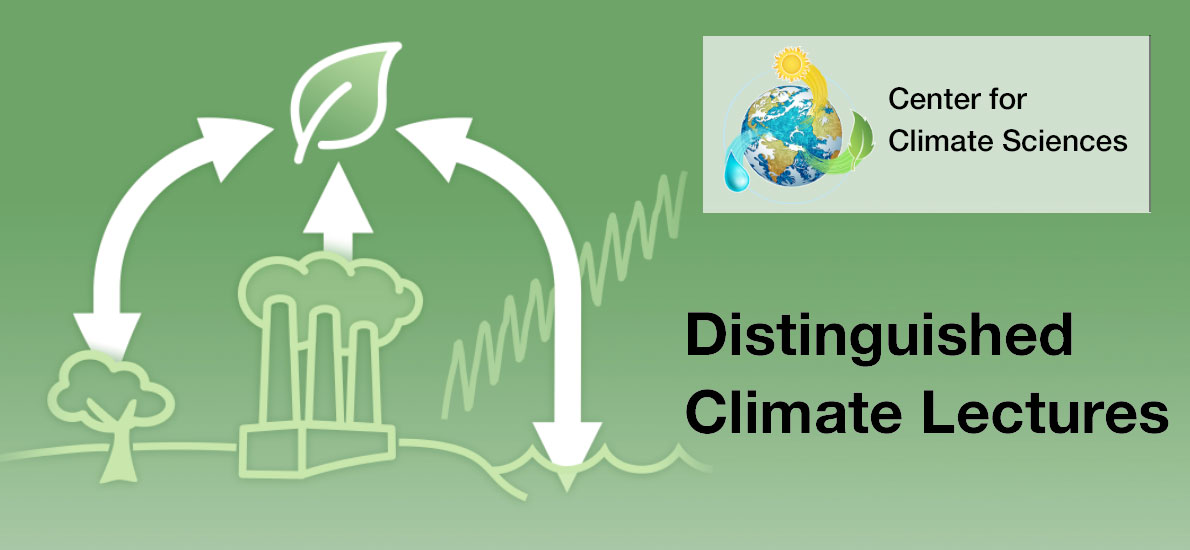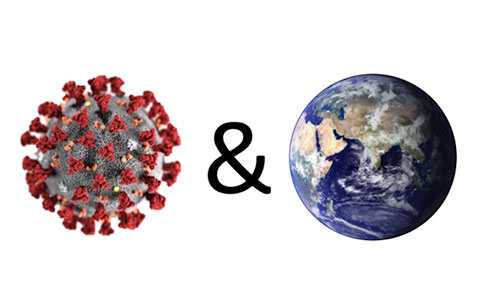Seminars
The Intersections between COVID and Climate Change: Simulating Cross Timescale Radiative and Composition Impacts of COVID-19 Emissions Changes, with some Thoughts about Uncertainty in Physical and Epidemiological Models.
September 10, 2020
| WebEx, 11:00am
› view lecture

About this Lecture

The COVID-19 Pandemic has turned most of the world upside down in 2020. COVID-19 related shutdowns have resulted in significant changes in anthropogenic emissions in 2020. We use estimates of COVID-19 mitigation related emissions changes in an Earth System Model to tease out COVID related impacts across timescales, starting with impacts of aviation reductions on daily weather and climate, to local and global air quality and composition impacts of regional and global emissions changes, to the direct and indirect radiative forcing associated with emissions changes. Using a hierarchy of model approaches we are able to separate signal to noise, and show small but quantifiable impacts on the earth system, equivalent to rolling back up to a decade worth of emissions increases. And finally, there are some interesting similarities between models of climate and pandemics, and how we understand uncertainty in models.
About

Dr. Andrew Gettelman is a Senior Scientist at the National Center for Atmospheric Research. Dr. Gettelman's recent work focuses on developing atmosphere and chemistry components for global climate models. He specializes in understanding and simulating cloud processes, especially ice clouds, and their impact on climate. Dr. Gettelman has published numerous scientific studies about cloud physics representations in global models, as well as research into climate forcing and feedbacks and the impact of aviation emissions on climate. He has participated in several international assessments of climate models, particularly for atmospheric chemistry. Dr. Gettelman is a recipient of the American Geophysical Union Ascent Award, and is a Thompson-Reuters Highly Cited Researcher. He received his doctorate in atmospheric science from the University of Washington, Seattle and a Bachelors of Science in Civil Engineering from Princeton University. Dr. Gettelman has been a visiting professor at Oxford University, ETH-Zürich, the University of Canterbury in New Zealand and the Max Planck Institute for Meteorology in Hamburg.
